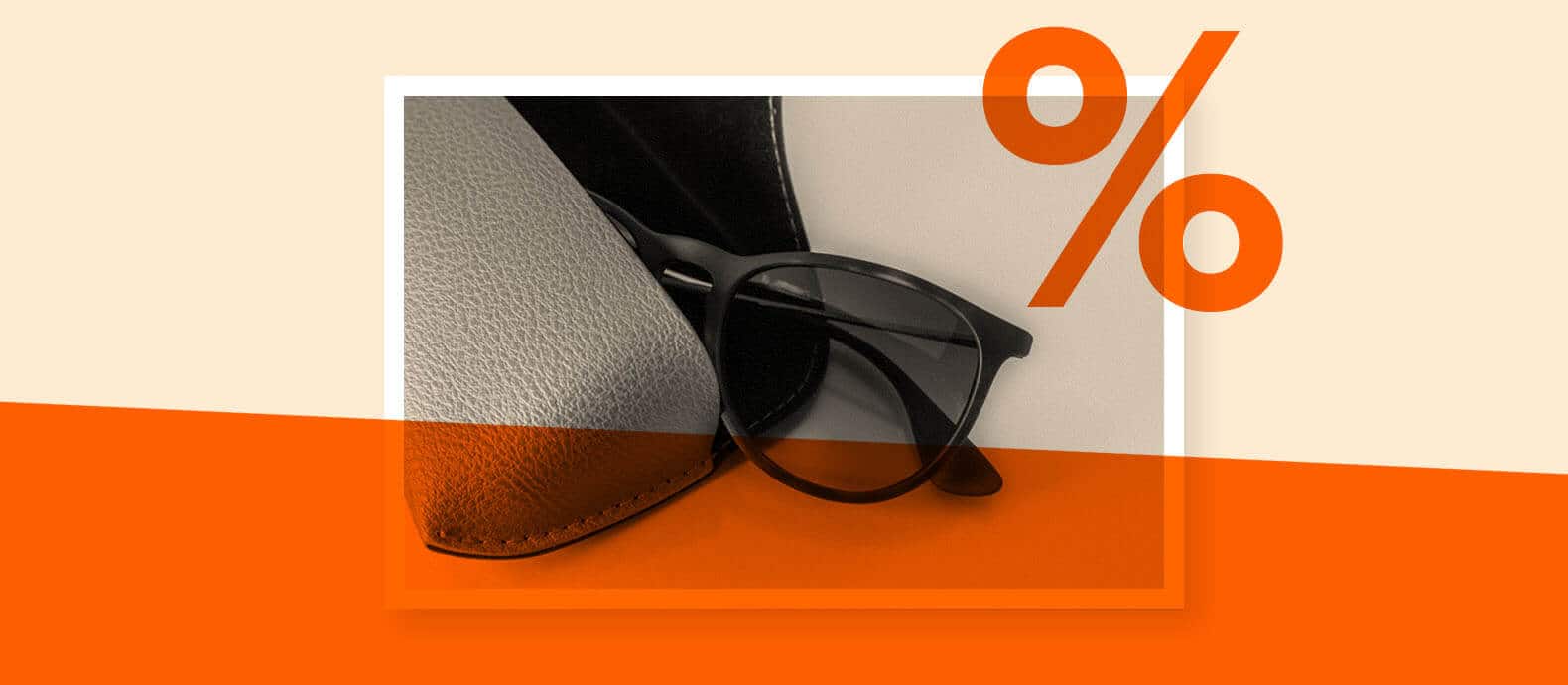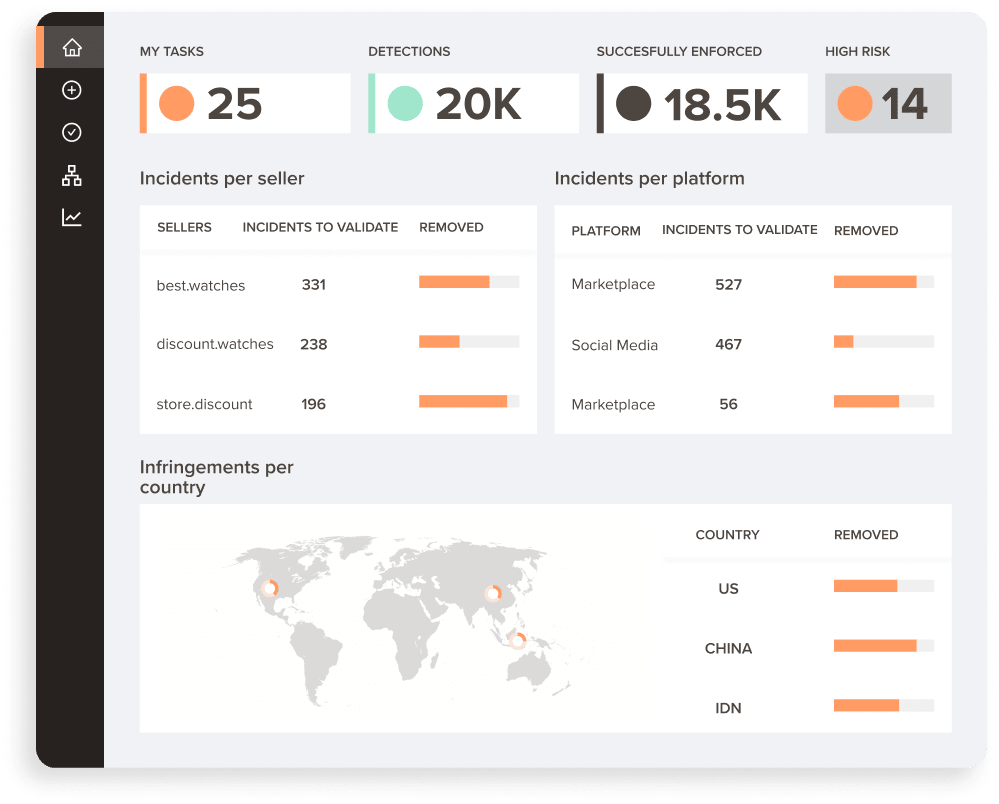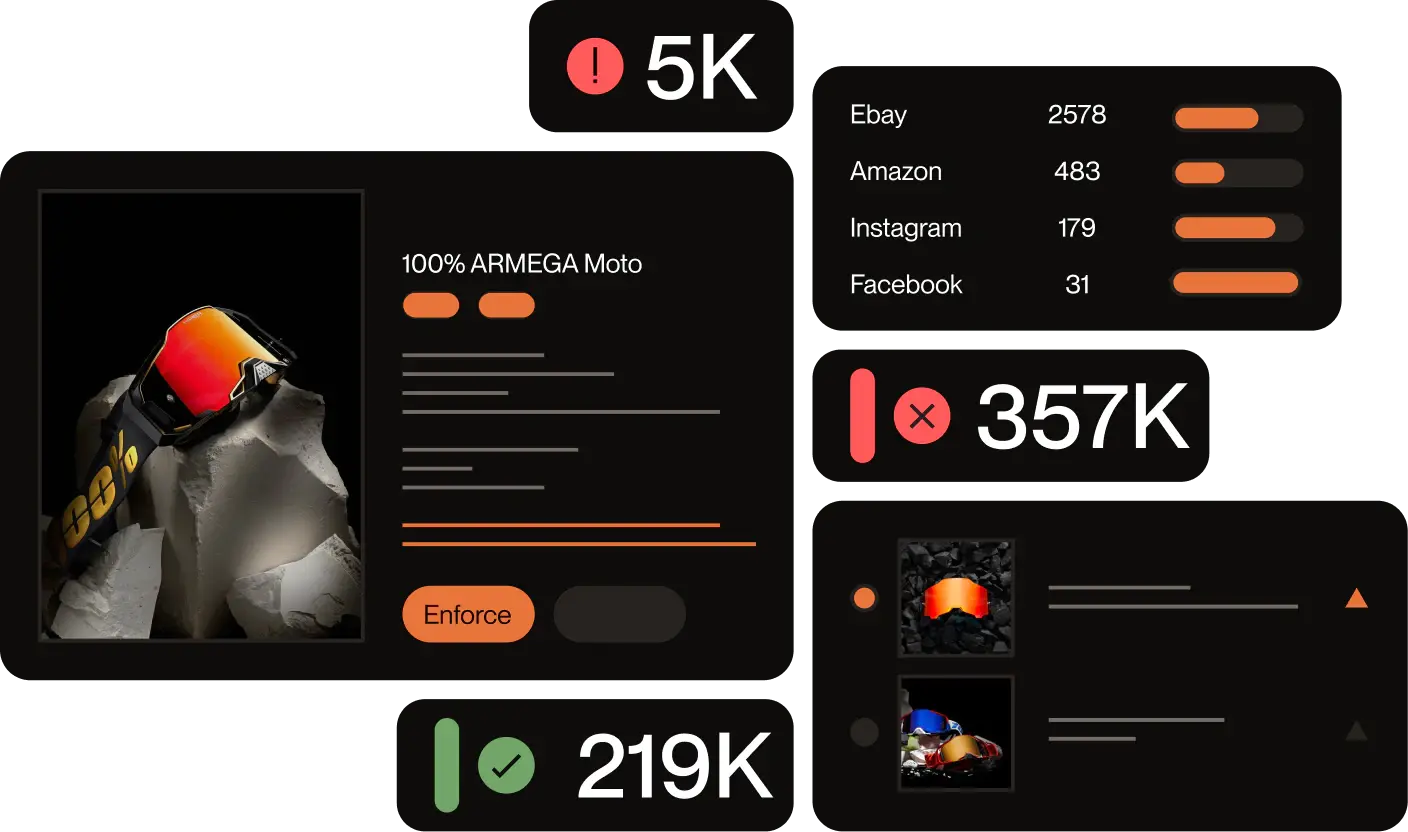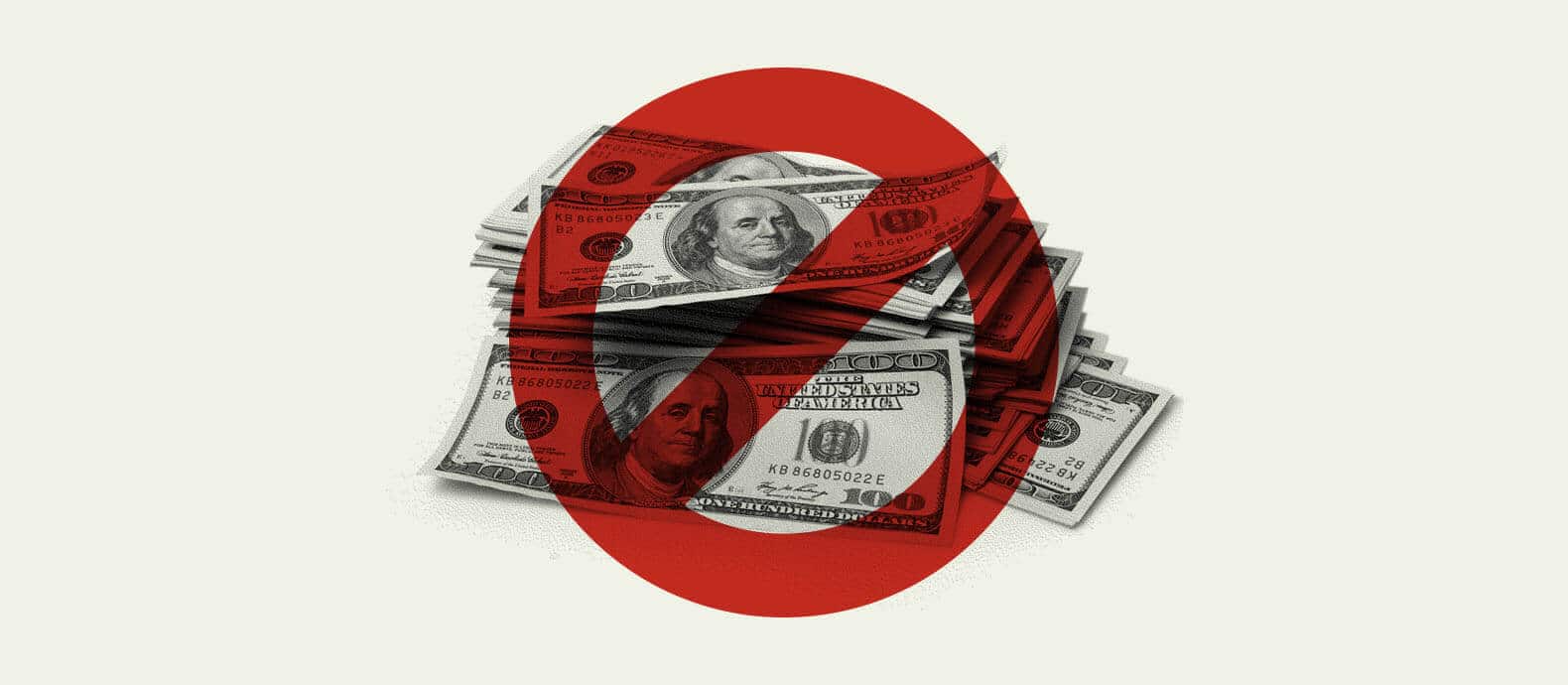Alibaba.com is one of the world’s biggest B2B sales platforms, with more than one billion annual active customers around the world. Rather than acting as a supplier, Alibaba.com, which is based in China, connects manufacturers and wholesalers to global businesses.
But despite its international success, Alibaba.com is not immune to the challenges and pitfalls of intermediary ecommerce platforms. The site has been known to fall victim to scams and counterfeits. While Alibaba.com is a legitimate, highly successful ecommerce site with millions of users, users need to check the authenticity of their supplier before purchasing through Alibaba.com.
It’s important to be vigilant when buying products from any online retailer. And if you don’t look out for potential scams or counterfeits then it’s possible that your items could arrive in poor condition, not turn up at all, or turn out to be counterfeits.
In this guide, we will help brands find ways to combat the counterfeiting market enabled by ecommerce sites like Alibaba.com. You will learn:
- The scope of Alibaba.com scams and the counterfeit market,
- Common scams on the ecommerce site,
- And how to avoid becoming a target for counterfeiters and Alibaba scammers.
What is Alibaba?
Alibaba.com is just one of the ecommerce sites owned by global ecommerce company, Alibaba Group. Aside from Alibaba.com, the Alibaba Group also owns Aliexpress, Lazada, and Taobao, to name a few. In fact, Alibaba Group is the world’s largest retailer—that means it’s bigger than eBay or Amazon, and its net worth is $189.29 billion in 2024.
Alibaba owns Alibaba.com, which connects wholesalers and suppliers (primarily from China) with businesses around the globe. It is the website that most importers will start out using. If you’re reading this right now, you’re either considering using Alibaba.com, or are already one of their customers. Alibaba.com usually requires a minimum quantity of orders before shipping.
Companies can choose a manufacturer via Alibaba.com and have products shipped to them immediately. Alternatively, many suppliers will have the option to create customizable products, where you can create a product from scratch, or the seller gives you customizable options to choose from.
Scope of the problem
The counterfeit market is a huge problem for businesses across the globe. The International Chamber of Commerce estimates that the global economic value of counterfeiting and piracy will exceed $4.2 trillion, putting 5.4 million legitimate jobs at risk over that period.
Alibaba is doing a lot to tackle the exchange of counterfeit goods, demonstrated by its anti-counterfeiting alliance which, in 2023, protected 730,000 brands. It also found that 98% of IP infringements were handled and taken down within 24 hours of the request being made.
That said, non-delivery scams and counterfeits continue to be a major burden to both the platform and its users. In 2022, Aljazeera reported that Alibaba Group Holding Ltd was placed on the US government’s “notorious markets” list of companies that sell or facilitate the sale of counterfeit goods. Companies, therefore, need to remain vigilant to avoid becoming victims of scams.
6 common scams on Alibaba
1 – “Cheap” branded products
Some Alibaba wholesalers claim to offer cheaper brand products because they are the original manufacturers, therefore “cutting out the need for a middleman.” However, any branded product on Alibaba is cause for alarm and it is recommended that companies don’t buy branded products on Alibaba since they are almost always fake.
The same rule applies to any licensed products, such as clothing with logos from sports teams and Disney characters.
2 – Price increase after you place your order
To lure you in, some suppliers and manufacturers will quote you an unbeatable price. You begin the process of buying the product, negotiating an agreement, and then making the deposit. Then, the seller increases the price, under pretenses such as the rising cost of raw materials.
At this stage, companies may be tempted to give in to the seller’s requests due to the amount of time and money they have already invested.
3 – High-quality sample, low-quality products
Many companies will ask for a sample of the product before they commit to buying in bulk. The manufacturer will then send a high-quality sample. The buyer then agrees to buy their products in large quantities, only to find that the products they sent in no way match up to the quality of the sample.
4 – Branded products with fake trademarks
Alibaba is known for sourcing high-quality products. However, there are some unscrupulous entities. When it comes to the sample, the manufacturer will send you the original, branded product.
However, as soon as you buy in bulk, you may receive a huge order of identical-looking products, but with fake logos and other false trademarks. Thus, you have been caught by a counterfeiter.
5 – Non-delivery scams
Unfortunately, this kind of scam is rampant in ecommerce. The telltale sign is that the seller has been doing business for less than a year. Perhaps they did business legitimately during the year they subscribed to Alibaba. However, at the end of the year, if their business isn’t doing well, they may decide to make money through fraudulent means, such as selling the products, receiving the money, and running.
Or, perhaps they were fraudulent from the start, in which case you can expect them to be very new companies, since it won’t be long before they disappear and try other websites through which to scam buyers. They may have set up fake websites to make them look like authentic manufacturers and when it’s time to pay, they ask you to send the payment to the “boss’s account” because their payment method isn’t working.
6 – Fake Alibaba profiles
Some Chinese scammers will open a free, unverified Alibaba profile using the details of a legitimate UK, US, or EU-based company. These fake profiles perhaps even go so far as to create phishing websites to make them look more authentic and pretend to sell that company’s branded (or unbranded) goods.
More often than not, you will pay for the goods, and they’ll never arrive. Or, the fake company will send counterfeit versions of the products you ordered. Either way, always avoid buying from unverified sellers.
9 tips to avoid scams while looking for an Alibaba supplier
Although not completely foolproof, knowing what the red flags are when choosing an Alibaba supplier will help you dodge scammers and counterfeiters. Here are our top eight tips you should take into consideration when choosing a reliable Alibaba supplier:
1 – Trade Assurance
Get Trade Assurance—a free service offered by Alibaba. It covers you if the products you ordered are not shipped on time and if what you receive doesn’t meet the standard or specifications you were expecting. If either of these comes to pass, Alibaba will issue you a full refund.
2 – Gold suppliers
There are three tiers of Gold suppliers on Alibaba: Basic membership ($2,999 per year), Standard ($3,999 per year), and Premium ($5,999 per year). Scammers will usually opt for the free, unverified Alibaba accounts. The memberships offer website and postage options, as well as third-party authentication.
Buying from a Gold supplier however doesn’t necessarily mean they aren’t scammers, but it is much less likely.
3 – Verified suppliers
An Alibaba supplier with verified status means that they are either from China, Hong Kong, or Taiwan, and have been inspected by a professional third-party inspection company. A supplier’s verified status will appear on their profile, as well as what they have been verified for. This is probably your best method when it comes to finding reliable suppliers.
4 – Check reviews and ratings
Reviews can be faked but checking reviews and ratings is usually a good place to start when it comes to ruling out certain suppliers or getting an idea of what to expect.
5 – Years trading
You can check how many years companies have been selling on Alibaba. Choosing a supplier with a one-year membership will be more risky than selecting a supplier that has been selling on the platform for longer. If you do choose a one-year membership supplier, be sure to use Trade Assurance or PayPal for extra protection.
6 – Business license and certificates
Check the business license and any other certificates online. You should be able to find the company name, location, main product, and partnership type if it is a legitimate business. Also, check for their factory or export licenses.
You should also make sure the suppliers have all the necessary certifications for the specific products they are trading.
7 – Avoid brand products
It is generally advised to avoid branded products on Alibaba. This is because they are more than likely to be replicas, counterfeit goods, or non-delivery scams. Brands usually have a list of partners on their websites, so if you do find a branded product, check the original brand’s website.
8 – Finalize key details
It’s always a good idea to finalize key issues such as product specifications, price and payment details and deadlines, seller guarantees, refund policy, and the seller’s dispute resolution.
9 – Hire a third-party inspection service
When buying products in bulk, hiring a third-party inspection service to check the goods in China before they are shipped can be a useful way to avoid receiving poor quality or counterfeit goods.
Scammers are targeting my brand in Alibaba: What should I do?
If you find that your products are being counterfeited on Alibaba or that scammers are pretending to be your company, you must act. Counterfeits impact brands in a number of ways, but perhaps most significant is the sale money lost to the counterfeit version of your product, as well as the detrimental impact on your brand reputation.
If you find that companies on Alibaba are infringing on your company’s intellectual property (IP), here’s what you need to do:
1. Register your trademarks and copyright
Registering your trademark, copyright, and other IP-protected material is a good first step to counteracting bad actors. Copyrighting your website and protecting your logos are important preventative measures against counterfeiting.
2. Register with Alibaba’s IP Protection Platform
To make taking down IP infringements (such as counterfeits) easier, Alibaba Group has created their own IP Protection Platform. Once you have signed up with this platform, then you can begin the process of taking down listings that infringe on your IP.
3. Automatically scan Alibaba.com 24/7 for infringing listings and take down
There is no easy way to manually search through millions of listings for any infringements on the Alibaba platform. However, Red Points Anti-Counterfeit Solution uses bot-powered search and photo analysis to detect counterfeits on ecommerce platforms. Once detected, Red Points will automatically send take-down requests.
What next
Although Alibaba is taking an active role in the fight against counterfeits and other types of IP infringement, scammers are always finding ways to eschew new rules. The world of ecommerce is constantly growing, which means new, fraudulent businesses aren’t always caught before they manage to scam individuals or companies.
If you’re looking to start using a supplier on Alibaba.com, there are several checks you should make before making an order. If however your brand has been targeted – either in the form of counterfeiting your products or pretending to be your company – Red Points Intellectual Property Software will automatically detect and take down infringing listings on sites such as Alibaba.com.








